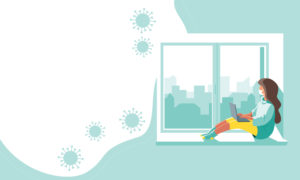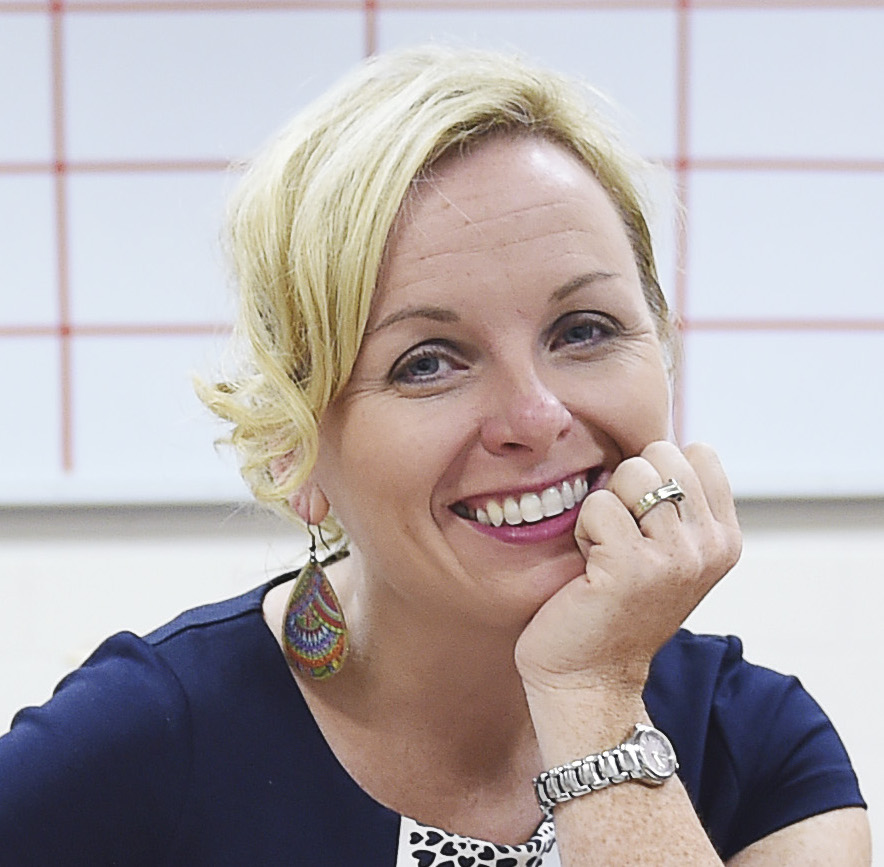You will have to quarantine.
For many educators, these are the words we have lost sleep over, worried about hearing, and struggled to plan for when it does happen. While we are preparing lessons for our students who are at home learning and supporting our colleagues’ classes while they are at home, we are hoping that we will make it through this pandemic with it not happening to us. But what happens when it does? When a loved one we live with, someone we are close to, or ourselves are faced with a positive COVID-19 test and we have to quarantine?
While you can search for resources to support families and students, try Googling “how to quarantine as an educator.” You’ll find more about how we can support our students and families, and less about how we can take care of ourselves.
I was literally weeks from receiving the vaccine when my husband started showing symptoms and tested positive. As I wrote this last month, we were eight days into a 14-day quarantine. Three of us are negative and one was positive. What I have learned is that self-care is not selfish. During COVID-19, it is truly lifesaving.
Take a Breath

This is a pandemic—you didn’t cause it, and if you are an Enneagram Type Two, you might need me to say it a few more times to really believe it. Once you get the call to quarantine, literally take a breath. This is going to be at least a 10- to 14-day process. You don’t have to make six months of lesson plans in the next 30 minutes.
If you have a district COVID-19 coordinator or supervisor responsible for the next steps, call them instead of Googling the next steps on the internet. Have a teaching partner, grade level counselor, or academic coach that you lean on if you have to be gone? This is a time to give them a call and share any details of where your materials are or special connections you want to make sure continue in your absence. In my experience, these calls don’t usually happen when you have weeks to prepare, they happen in real time, on the same day, or they will impact the next day. And while I just said you should reach out to someone you trust, this isn’t something you need to post on social media. Your health and your sanity is the priority, not the notifications from a post you make.
There Is No Shame in This Season
Last I checked, you didn’t cause the pandemic, so stop the shame game. You can spend the next 10 to 14 days ruminating about how this happened, or you can simply let it go. The energy you are wasting needs to be reallocated to taking care of yourself and any loved ones in the house with you. Asking for help is hard, but during a pandemic it’s necessary. Need ideas of how and why it is important? Check out this article on how to ask for help at work.
Your Basic Needs Are the Priority
Maslow’s never mattered more as an educator than when you are looking at 14 days of staying at home. Make sure you have food, water, and other needs met. Delivery, contactless pickup, and leaning on your friends to help will be essential when you really can’t do it on your own. Make sure you are getting sleep and limit your own screen time over the next few weeks.
Patience Over Productivity
Please don’t look at this time as an opportunity to set and achieve big goals. Trust me—by Day 3, you will feel a little defeated. Focus on the absolute essential tasks each day and then go from there. If you need a checklist or small wins, take a look at these ideas for surviving a quarantine.
Pause Over Pushing
It may be frustrating that you might be more fatigued now when you are not leaving the house. The stress of a quarantine, caring for family, and worrying about your students can take an emotional toll that has physical ramifications. Create routines, and if necessary include rest and additional hours for sleep. And if you are into the Enneagram, check out this series on Enneagram and Stress from Ian Morgan Cron.
Caregiver fatigue can happen, and it is important to recognize the warning signs and create space to find ways to manage your own stress. The Mayo Clinic provides practical tools for daily pauses during isolation.
Grace Over Goals
More than once during our quarantine, things didn’t work for me. My internet connection was unstable, files didn’t load as quickly at home as I wished, and I had to turn off meetings more often so I could tune into the teenagers at home. All this meant my weekly goals were not working.
It is not only okay but necessary to realize that when you are out, you can’t be on all the time. And turning it off requires you to lean into your support system in all aspects of your life quadrants.
- Who are your friends outside of work that could drop off food?
- Can anyone at work check in on a few students and give them messages for you?
- Are you in any outside coursework/classes that you might need to take a break from while out?
- When are you finding time to take time for yourself, do you have someone that you can call to help hold you accountable to your own mental health?
Permission to Rest
Finally, take time to rest. This might not be the time to start a couch to 5K plan, but it might be a great opportunity to include a daily walk, yoga, reading, or journaling. I have a goal each day to take one picture of our quarantine to include in a future family photo album, write (or email) a thank-you to one person who has helped me while I am away from school, and spend at least one hour a day offline, with the phone off to spend time with family.
And please when you get back, step back. Your first day back is not a time to jump in at full speed. Survey your surroundings, take stock of how things went when you were gone, and be intentional about being present with your students and your colleagues. Don’t forget why you were gone, and the importance of maintaining your health and continuing strategies so you can attempt to prevent a future quarantine.
While this situation may not be ideal, there might be an opportunity to find a little time to rest while you are away, and a chance to be more resilient with some of these practices when you return to school.

